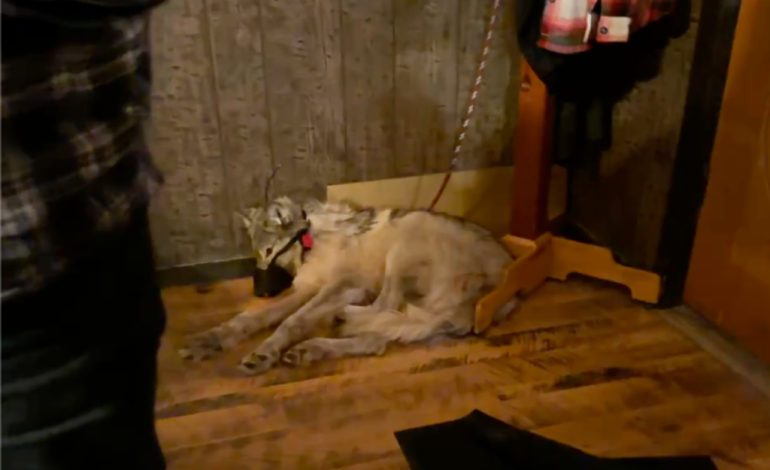Wyoming Lawmakers Consider Tougher Penalties for Wildlife Torture After Wolf Incident

Wyoming legislators are debating several bills aimed at addressing wildlife cruelty, sparked by global outrage over a controversial incident involving the torture of a wolf, Oil City News reports.
The proposals aim to crack down on unethical treatment of wildlife while balancing the interests of hunters, ranchers, and wildlife advocates.
The controversy began when a Wyoming man struck a young wolf with a snowmobile, severely injured it, and paraded the animal through a Sublette County bar. The incident prompted widespread condemnation and led to calls for stricter laws to prevent such behavior.
One key response is House Bill 275 (HB 275), “Treatment of Animals,” introduced by Representative Andrew Byron, chair of the House Travel, Recreation, Wildlife, and Cultural Resources Committee. The bill seeks to classify intentional acts of wildlife torture, torment, or mutilation as felony animal cruelty. Penalties under the bill include up to two years in prison, loss of hunting and fishing privileges for up to six years, and forfeiture of equipment used in the offense.
“This was a big eyesore for the state and an embarrassment,” Byron said.
He emphasized the need to send a clear message against such actions.
HB 275 would not prohibit the use of motorized vehicles for hunting predators but mandates that snowmobilers who strike wildlife intentionally must make reasonable efforts to euthanize the animal immediately.
The bill has garnered bipartisan support from lawmakers across Wyoming, with a diverse group of co-sponsors and backing from Wyoming Sportsmanship, a nonprofit advocating ethical hunting practices. A survey commissioned by the organization revealed that 78% of Wyoming residents support tougher penalties for wildlife cruelty.
In addition to HB 275, Representative Mike Schmid is preparing a separate bill to ban the use of motorized vehicles, such as snowmobiles and ATVs, as weapons to maim or kill wildlife on public lands. Schmid, a former Wyoming Game and Fish commissioner, emphasized the importance of respecting all animals, including predators like coyotes.
“I hear, ‘Well, it’s just a coyote,’” Schmid said. “But it is a living creature and deserves the same respect as any other wildlife.”
This measure aims to address ethical concerns without impeding ranchers and landowners, who may continue to use motorized vehicles for predator control on private property.
The proposed legislation has drawn some resistance, particularly from the livestock industry, which views motorized vehicles as an effective tool for managing predators. Jim Magagna, executive vice president of the Wyoming Stock Growers Association, has argued for maintaining flexibility in predator management, especially for sheep ranchers.
House Speaker Chip Neiman noted that the world is watching how Wyoming handles the fallout from the wolf incident. While HB 275 and other proposals enjoy growing support, their success will depend on navigating the political dynamics within the state legislature, including the Wyoming Freedom Caucus.
Proponents of the bills stress that the goal is not to restrict hunting but to uphold ethical standards for managing wildlife. As Paul Ulrich of Wyoming Sportsmanship explained:
“This isn’t saying you can’t hunt a predator — of course you can. But it is saying that when you take that animal, you will dispatch it as a sportsman — without torture, abuse, and reprehensible actions.”








